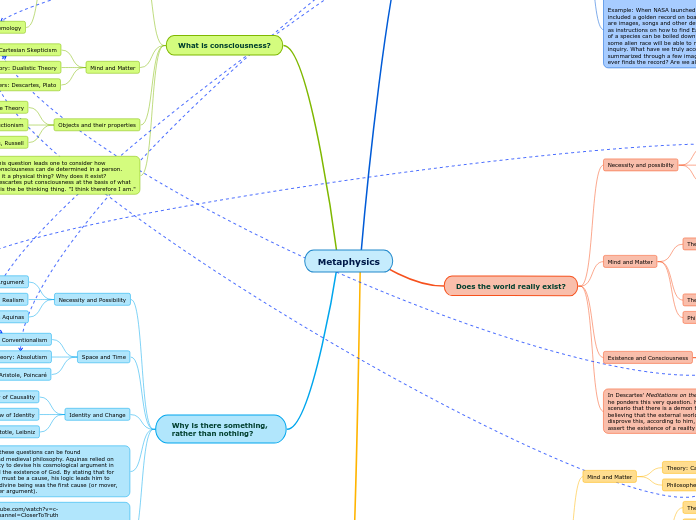av David Johnson 4 år siden
497
Metaphysics

av David Johnson 4 år siden
497

Mer som dette
https://katherinehawleydotorg.files.wordpress.com/2015/02/applied-metaphysics-may-5th.pdf Example: This paper examines real world applications of ontology. Notable here is the use of ontology tht has become prevalent in the world of computing sciences. As the information systems that computer scientists build become more and more complex, it becomes more and more important to categorise and organise the system. In doing so, the programmer is forced to rely on ontology to determine the nature of existence for various terms. For example, if the program is seeking to store information about bikes, the programmer would have to use their own ontology to determine standardised descriptions of what a bike is, what parts constitute the bike, etc. This is a simple example but it still shows how the programmer is making use of ontology to determine the “rules” of existence in the system.
Example: this meme illustrates the rigour with which Descartes questionned his surroundings. It also shows how easily his skepticism can be adapted to fit our humour.